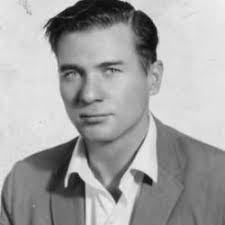
In the introduction to his and Hannah Liebmann’s translation of selected Rilke poems, The Essential Rilke, the late Vermont poet Galway Kinnell shares a “moment.” You know, one of those moments when reader first meets some wonderful writing.
He writes, “The wish to translate Rilke’s poetry first came to me in 1948, when I read all the way through J.B Leishman and Stephen Spender’s exuberant translation of the Duino Elegies while standing in the poetry section of the old Eighth Street Bookstore in New York. Even in that first spellbound encounter, I thought I sensed under the words of the translation another, truer Rilke struggling to speak.”
We all carry with us such moments. Moments married with certain books. I remember, for instance, being holed up in a warm farmhouse on a mountain in Maine during a November blizzard. I sat by a Franklin stove crackling with firewood, reading Ivan Turgenev’s Sketches from a Hunter’s Album. Forever, that book will be associated with that place. That moment in time.
And once, on vacation in the Bahamas. Outside the hotel poolside. It was the opening section of Hemingway’s Islands in the Stream—the part where the painter Thomas Hudson and his sons are staying in a house “shaded by tall coconut palms that were bent by the trade wind and on the ocean side you could walk out of the door and down the bluff across the white sand and into the Gulf Stream…. It was a safe and fine place to bathe in the day but it was no place to swim at night.” Sharks, of course, which will figure in a dramatic moment with one of Hudson’s sons further down the book.
And once, on a beach chair in Scarborough, Maine. It was the Charterhouse of Parma, of all books, following the adventures of Fabrizio del Dongo during the Napoleonic Wars. I heard cannon and gunfire instead of gulls and ocean surf.
And once, feverish and sick with flu for five days as a grown man, when I decided to reread a copy of Robert Louis Stevenson’s A Child’s Garden of Verses, a dusty copy that had sat on various bookshelves for decades as I moved from house to house through the itinerary of my life. Particularly appropriate? “The Land of Counterpane”:
When I was sick and lay a-bed,
I had two pillows at my my head,
And all my toys beside me lay
To keep me happy all the day.
And sometimes for an hour or so
I watched my leaden soldiers go,
With different uniforms and drills,
Among the bed-clothes, through the hills;
And sometimes sent my ships in fleets
All up and down amount the sheets;
Or brought my trees and houses out,
And planted cities all about.
I was the giant great and still
That sits upon the pillow-hill,
And sees before him, dale and plain,
The pleasant land of counterpane.
I discovered that being sick makes “going back” all the easier when it comes to children’s literature. The “moment” showed me that sickness has a way of encouraging the child in us all, coaxing back that moment when creativity first worked at a feverish heat in our imaginations.
And so it was, reading this introduction, preparing to read Rilke’s Duino Elegies for the first time, that I first enjoyed the moment of picturing Galway Kinnell enjoying his moment.
I saw it all: Kinnell in 1948 at the tender age of 21, reading, reading, and unable to stop reading. Rilke’s prisoner. Caught in the moment.
